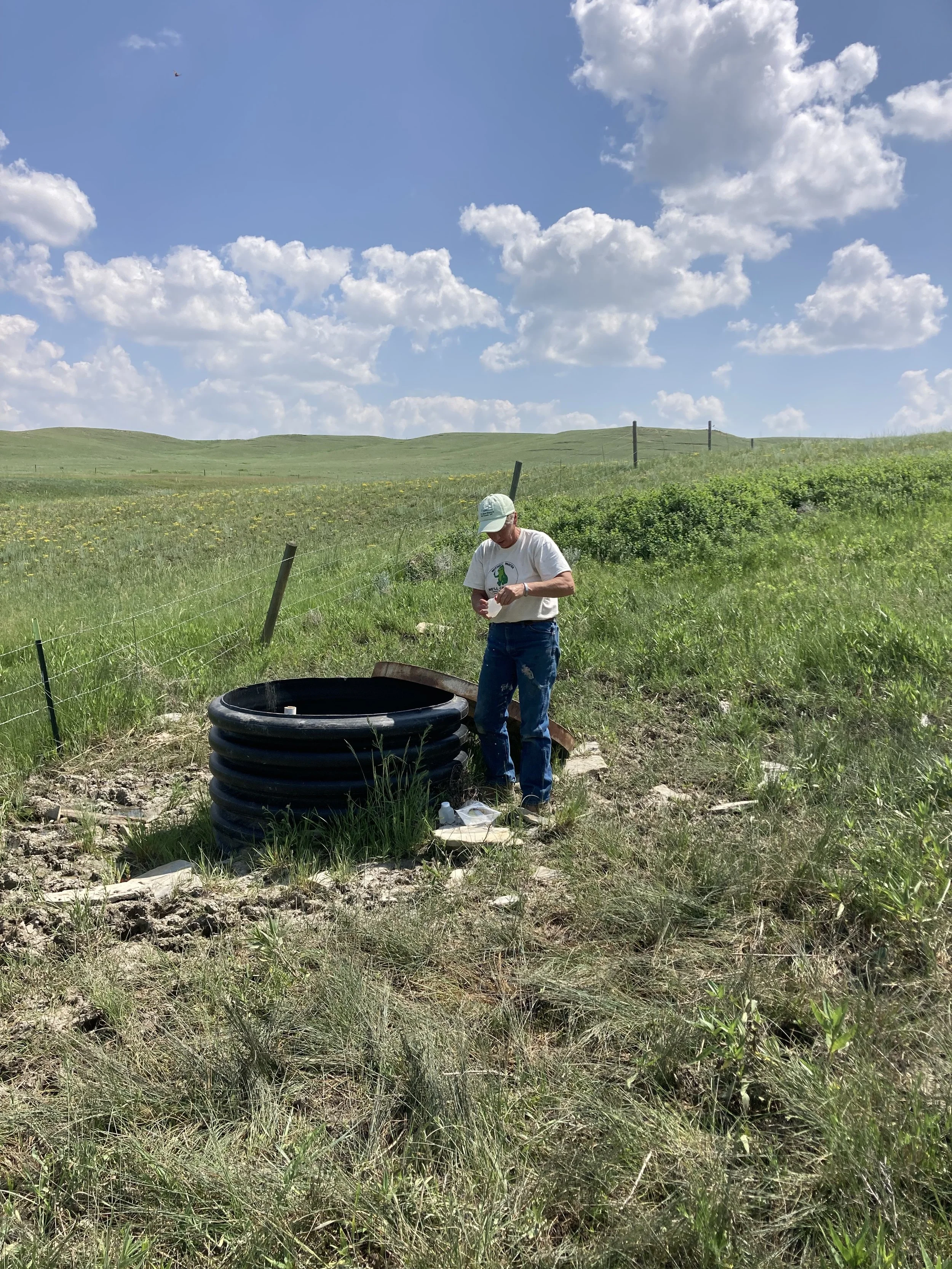Water Sampling Just In Case
I expect oil drillers to arrive at my ranch any moment.
I don’t own the oil and gas rights under my land so I don’t have a way to negotiate how their drilling and fracking procedures will protect my land and water. This concerns me.
I’m most concerned about my water.
This ranch boasts 16 springs, all of which are vulnerable to drilling holes in the ground.
Groundwater experts have told me two things: First, the water originates in the Rocky Mountains, about 50 miles west of the ranch. Second, that water flows down into the ground, hits a semi-permeable layer of shale, turns and flows out of the ground on my ranch.
So all 16 springs are connected and could be contaminated by spills or drilling through that semipermeable layer of shale.
And all 16 springs are vulnerable to water leaking through the drilled holes so they could dry up.
My sheep, cattle, horses and my daughter would have nothing to drink.
Cows need 30 gallons of water each day.
Sheep need 5 gallons each day.
My daughter, Abby, enjoys a gallon to drink plus enough to shower. Laundry, cooking, dishes and hand-washing use more than that.
Without water, this ranch would cease to function.
I have yet to meet the particular oil drilling company who has leased the drilling rights, but industry experts assure all of us that during the normal drilling procedure, they slide well casing down the hole to support the well, protect the tools, hoses and chemicals that go deep into the ground and shield the surrounding earth and water.
This is only good business.
When oil explorers came to search for oil in 2011, my friend Ginette, who is a groundwater expert for the Montana Bureau of Mines and Geology, helped me measure the flow of my springs.
We tested the water quality of each spring, too, but we didn’t test for hydrocarbons.
Meanwhile, I read about ranchers in eastern Montana and Wyoming who could light the water flowing from their kitchen tap on fire after fracking occurred in their areas.
Every rancher knows that when something breaks or something bad happens, it is probably caused by the most recent change.
If the cows get out, check for fence that was knocked down.
If the electricity goes out, check for a flipped breaker.
If tap water starts on fire, check for oil drilling in the area that pumped volatile, flammable chemicals down a well casing, deep into the earth.
But in the articles I read, the oil drillers denied responsibility for contaminating the groundwater. The drillers said the water could have already been capable of catching on fire, but nobody noticed before. The ranchers had not tested water samples before the drillers began so they had no way to prove their water had not been flammable, no data to compare.
Oil drillers might or might not contaminate my water. My fingers are crossed that all will go well, my cows will continue to have a drink and my daughter can continue to do laundry.
Still, I collected water samples from three of the most vulnerable springs that are scattered across the ranch and sent them to a reputable, objective water testing laboratory so I have baseline data. If I need to test contaminated water someday in the future, I will have something to compare it to.
Besides the usual tests for drinking water quality, I asked the lab to test for heavy metals and volatile petroleum hydrocarbons. I already know my water won’t catch on fire right now. These tests prove it.
These tests are not cheap. So far, I have invested about $1000 in water sample testing.
I really hope I just wasted that money.
